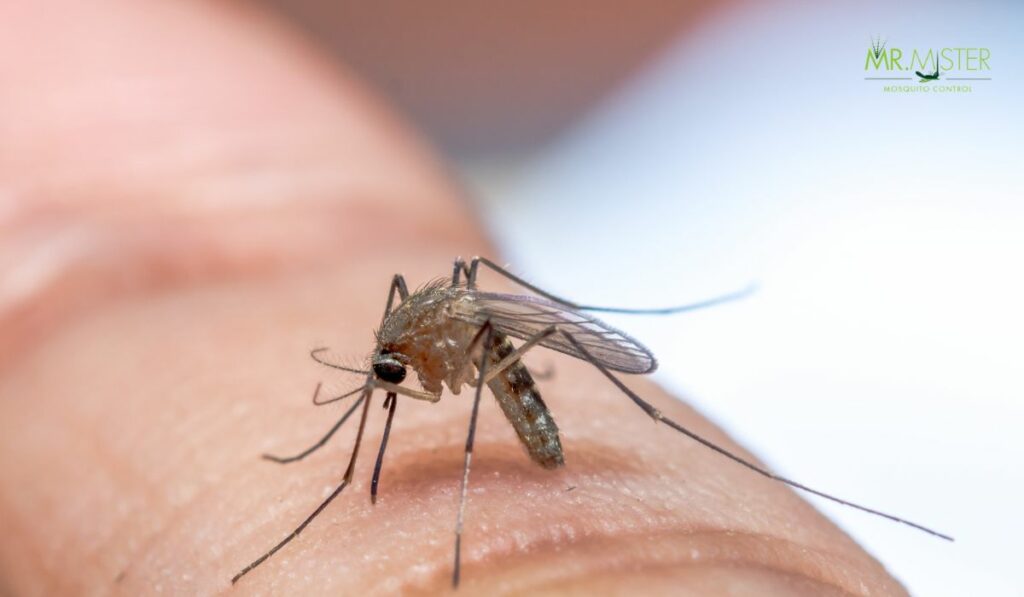What Methods You Shouldn’t Use For Mosquito Control
Mosquitoes are bothersome insects that can annoy, particularly in the warmer months. Their itchy bites and potential for spreading diseases make mosquito control an essential consideration for many individuals. However, not all methods of mosquito control are equally effective or safe. This article will explore some standard techniques that should be avoided when controlling mosquitoes.
Understanding Mosquito Control
Before diving into specific methods, it’s crucial to understand the goal of mosquito control. Mosquito control aims to reduce mosquito populations & minimize their negative impact on human health and well-being. Effective mosquito control methods should target adult mosquitoes, their larvae, or their breeding sites.
Standard Methods Used for Mosquito Control
Various methods are commonly employed to control mosquitoes, but not all yield desirable results. Some plans may even be ineffective or pose potential health risks.
Ineffective Methods
Regarding mosquito control, specific methods that are widely used may not be as effective as they claim to be. Let’s explore a few of these methods.
Citronella Candles
Citronella candles are a popular choice for repelling mosquitoes. However, their effectiveness should be more measured. While the scent of citronella can mask the attractants that lure mosquitoes, it has a limited range and may not provide adequate protection outdoors.
Bug Zappers
Bug zappers attract insects using ultraviolet light and electrocute them upon contact. While they may provide satisfaction by eliminating some mosquitoes, they are not the most effective control method. Bug zappers often kill harmless insects and are inefficient at reducing mosquito populations.
Ultrasonic Repellents
Ultrasonic mosquito repellents claim to emit high-frequency sounds that repel mosquitoes. However, scientific research suggests these devices have little to no effect on mosquito behavior. Their effectiveness in outdoor environments could be more questionable.
Potential Health Risks
Besides their limited effectiveness, some mosquito control methods can pose potential health risks. Therefore, it’s essential to be aware of these risks before using specific techniques.
Chemical-Based Pesticides
Chemical-based pesticides, such as mosquito sprays containing DEET or pyrethroids, are commonly used for mosquito control. While they can be adequate, prolonged or excessive exposure to these chemicals may have adverse health effects, especially for children, pregnant women, and pets.
Smoke or Fog Machines
Smoke or fog machines often create a mist of insecticides for outdoor mosquito control. These methods may effectively reduce mosquito populations in the short term. However, inhaling chemical-laden smoke or fog can harm humans and other animals, and the environmental impact should also be considered.
Alternative Approaches for Effective Mosquito Control
Now that we have discussed some methods to avoid let’s explore alternative approaches that can effectively control mosquitoes without the associated risks.
Environmental Modifications
Making environmental modifications can significantly reduce mosquito populations. This includes removing standing water where mosquitoes breed, ensuring proper drainage, and maintaining clean gutters. In addition, eliminating their breeding grounds can significantly reduce mosquitoes in your vicinity.
Natural Repellents
Natural repellents can be a safer alternative to chemical-based options. Ingredients like lemon eucalyptus, lavender, or neem oil have shown repellent properties against mosquitoes. In addition, these natural repellents can provide adequate protection when applied to the skin or used in diffusers indoors.
Mosquito-Proofing Your Home
One of the most successful methods to control mosquitoes is to stop their entry into your home. Ensure that window screens are intact and free of holes, seal gaps around doors and windows, and use bed nets to protect against mosquitoes while sleeping. You can keep mosquitoes out of your living space by creating a barrier.
FAQs
Q1: Are citronella candles completely ineffective against mosquitoes?
Citronella candles have a limited range and may not adequately protect against mosquitoes in outdoor environments. Therefore, it’s advisable to use additional methods alongside citronella candles for better control.
Q2: Can bug zappers to eliminate mosquitoes effectively?
Bug zappers are only some of the most efficient methods for mosquito control. While they may kill some mosquitoes, they harm harmless insects and do not effectively reduce mosquito populations.
Q3: Are ultrasonic mosquito repellents reliable?
Scientific research suggests that ultrasonic mosquito repellents have little to no effect on mosquito behavior, particularly in outdoor environments. Therefore, it’s best to rely on other proven methods for mosquito control.
Q4: Are natural repellents as effective as chemical-based options?
Natural repellents can provide adequate protection against mosquitoes. Ingredients like lemon eucalyptus, lavender, or neem oil have repellent properties. However, their longevity and effectiveness may vary.
Q5: How can I mosquito-proof my home effectively?
Mosquito-proofing your home involves:
- Sealing gaps around doors and windows.
- Ensuring intact window screens.
- Using bed nets while sleeping.
These measures create a barrier to keep mosquitoes out of your living space.
Q6: Are electronic mosquito traps effective?
Electronic mosquito traps can be effective in reducing mosquito populations. These traps use various mechanisms to attract and capture mosquitoes. However, their effectiveness may vary depending on the web and environmental factors.
Q7: Do mosquito-repellent wristbands work?
Mosquito-repellent wristbands typically contain repellent compounds like DEET or natural oils. While they may provide some localized protection, they are less effective than applying repellents directly to exposed skin. In addition, wristbands alone may not provide sufficient coverage against mosquitoes.
Q8: Can mosquito traps with carbon dioxide attractants help control mosquitoes?
Mosquito traps that use carbon dioxide as an attractant can effectively capture and reduce mosquito populations. Carbon dioxide mimics the human breath, attracting mosquitoes to the web. However, these traps are most effective when used with other control methods.
Q9: Are mosquito coils safe and effective option for mosquito control?
Mosquito coils, typically containing chemicals like pyrethroids, can provide localized protection against mosquitoes. However, prolonged exposure to the smoke from mosquito coils may have health risks, and their effectiveness is limited to a small area. Therefore, using them in well-ventilated spaces and considering alternative methods is advisable.
Q10: Are mosquito-repellent plants effective in controlling mosquitoes?
Certain plants like citronella, lemongrass, and marigolds have natural mosquito-repellent properties. While these plants can help deter mosquitoes to some extent, their effectiveness may vary, and they should not be solely relied upon for complete mosquito control.
* Schedule a Free Mosquito Control Consultation – 404-941-0720 *
* Guaranteed Results * 100% Biodegradable * Locally Owned







